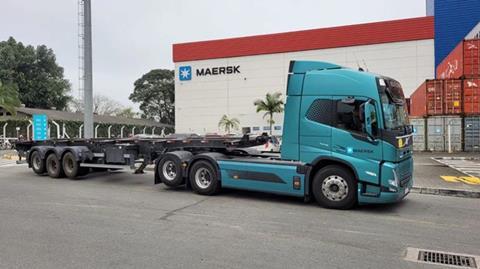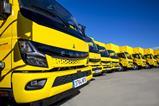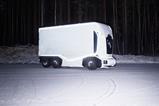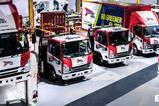Maersk has undertaken pilot tests in Brazil, collaborating with electric truck manufacturers, to introduce heavy-duty electric truck solutions as part of its commitment to reducing carbon emissions in Latin America’s supply chains.

Maersk, a global logistics company, has taken steps to introduce electric truck solutions in Brazil, aiming to support efforts to reduce carbon emissions in supply chains across Latin America. In this endeavor, Maersk conducted two pilot tests with heavy-duty tractor units capable of transporting full container loads (FCL).
The two-week pilot programmes involved collaboration with two different electric vehicle (EV) truck manufacturers in Brazil. The primary focus was to assess the feasibility of providing land-based connectivity for transportation. The tests took place in the metropolitan region of São Paulo, covering a 100-kilometer route between Barueri, Barra Funda, São Bernardo do Campo (charging station), and in the state of Santa Catarina, with a round trip between Itapoa and Araquari, spanning 230 kilometers.
In Brazil, seamless intermodal connectivity plays a crucial role in linking the country’s population with goods arriving at and departing from its ports. With approximately 60% of Brazilians living within 200 kilometers of the coast, efficient cabotage is essential. Integrating rail, trucking, and support distribution centres becomes pivotal to ensure end-to-end integrated logistics.
To facilitate the pilot tests, Maersk installed electric charging stations in its operational areas to enable night-time charging. The transition to renewable electricity sources for logistics facilities and land transportation is contingent on factors like local infrastructure investment and regulatory support. Currently, electric vehicles and alternative energy solutions are available on a limited scale.
In line with its goal of achieving climate-neutral landside transportation solutions by 2040, Maersk is prioritising electrification in heavy-duty trucking. This involves collaborating with customers to source 100% renewable electricity and identifying opportunities for one-time emissions reduction through modal shifts.


















